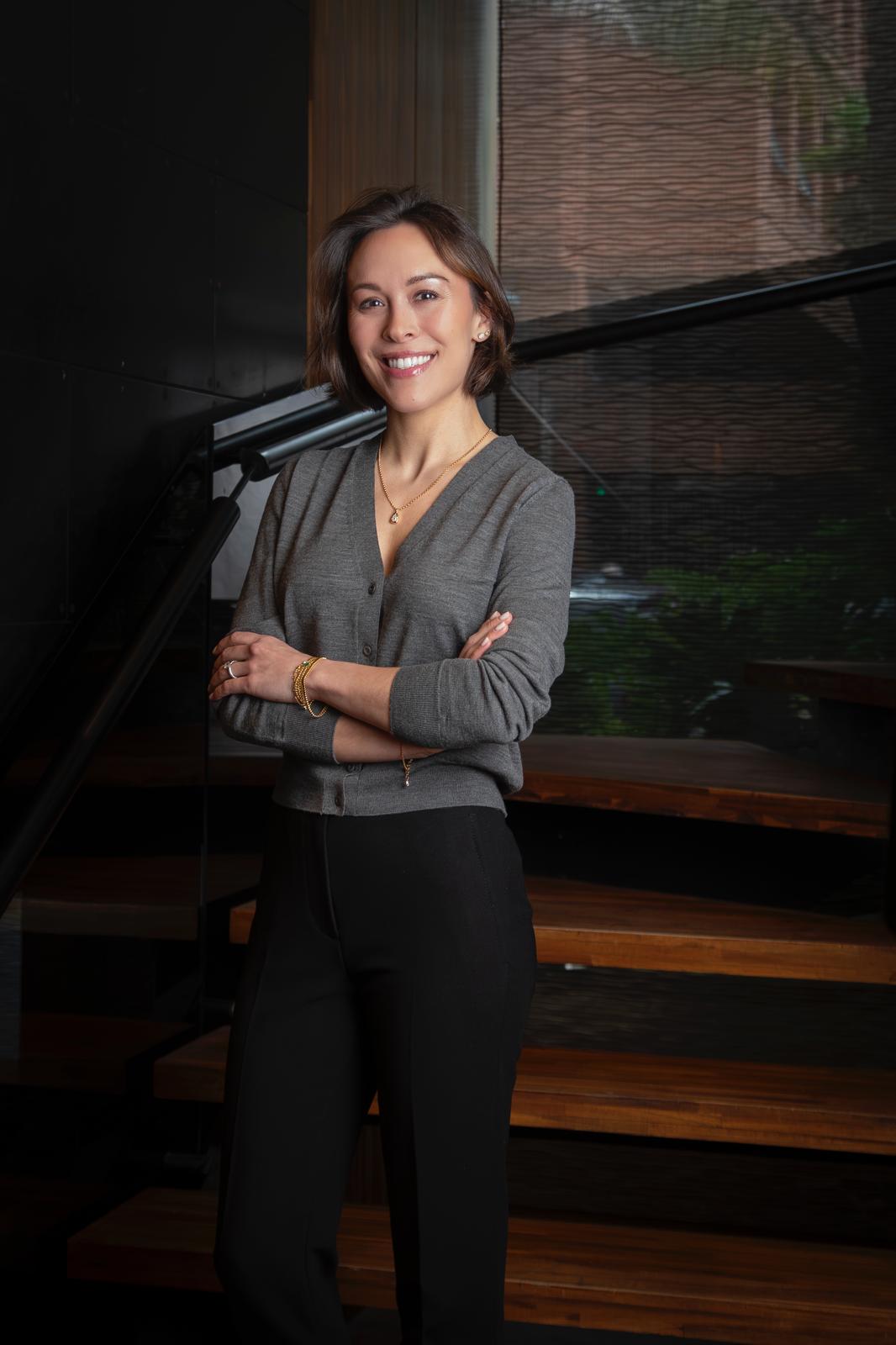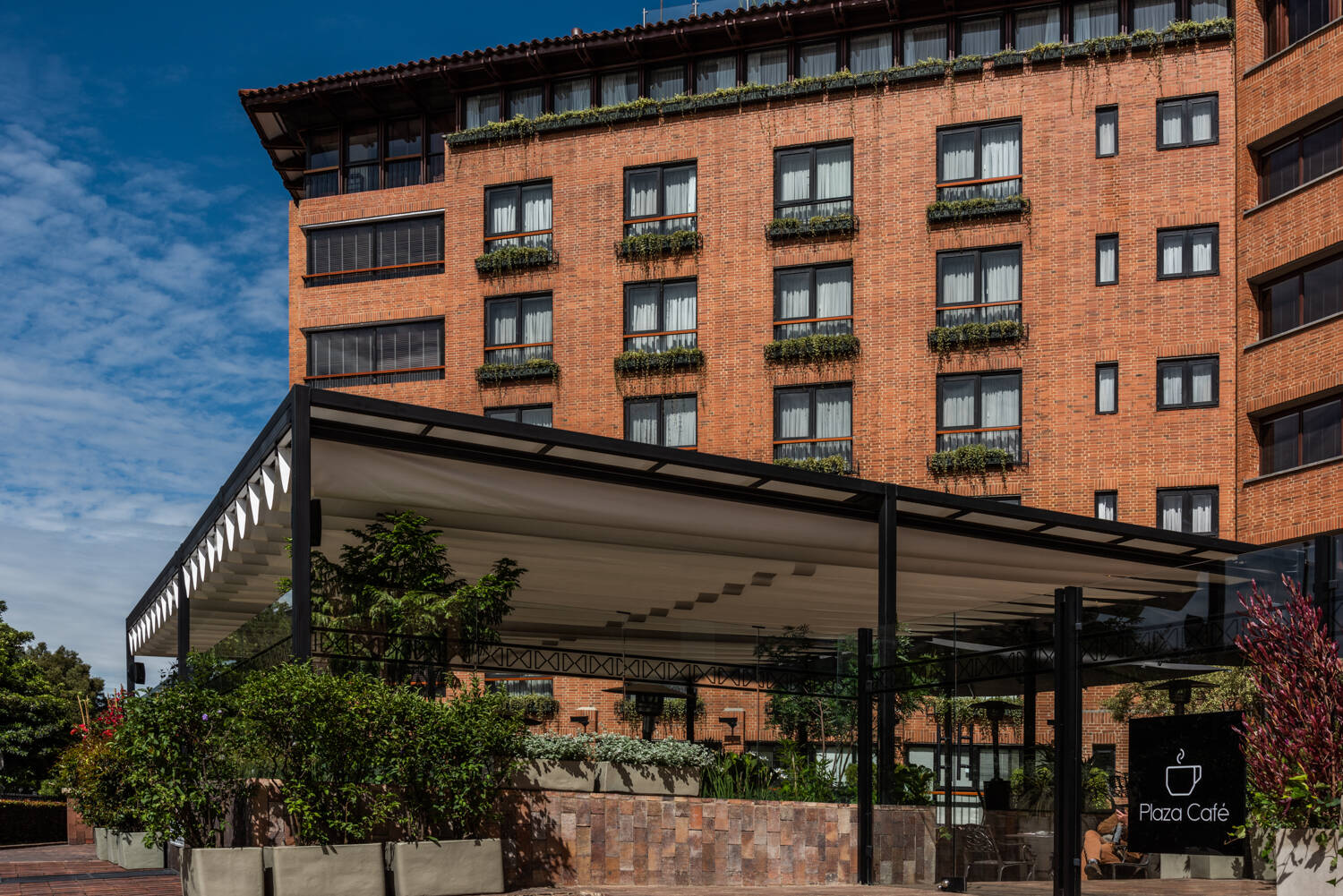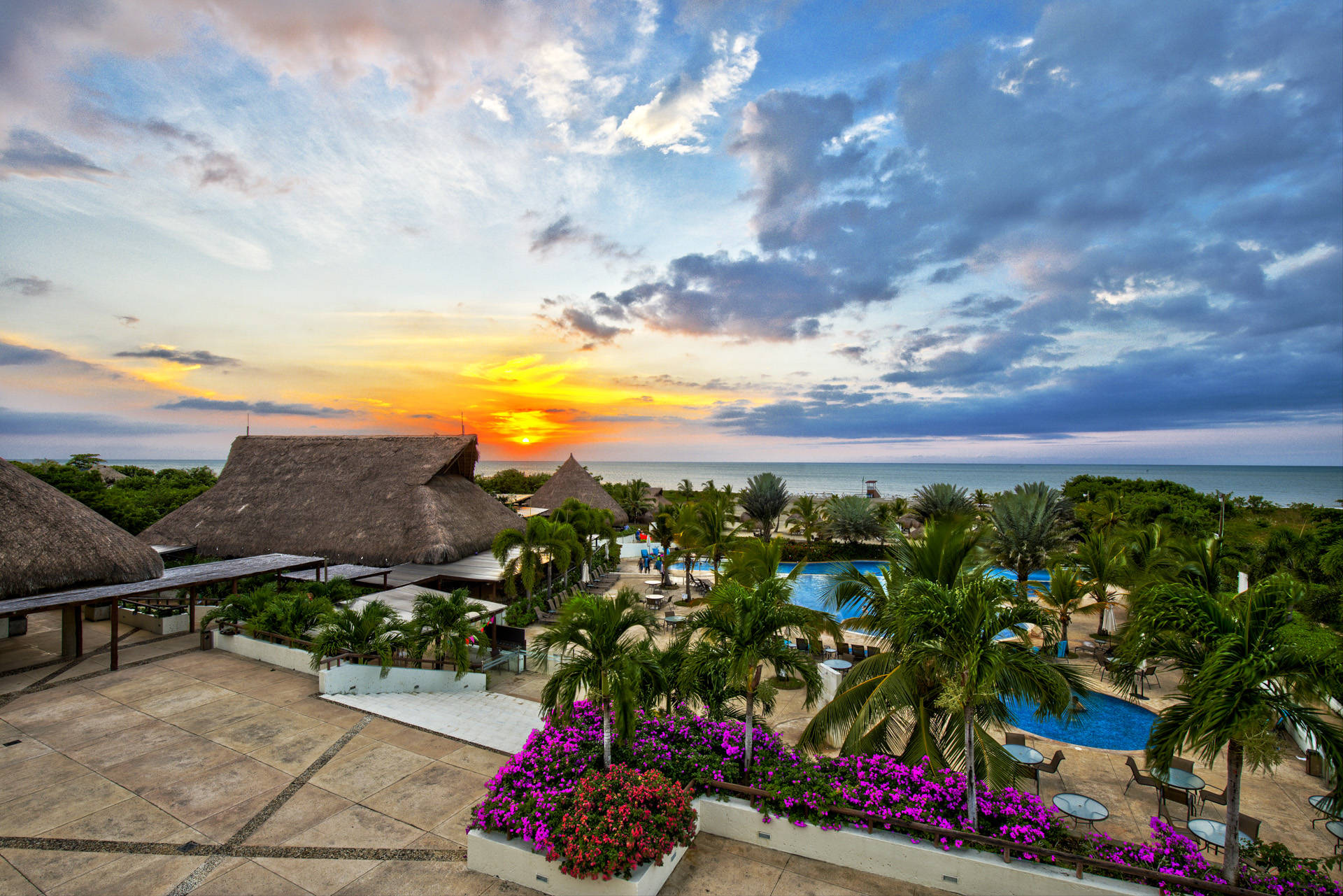Estelar Hotels diversifies its hospitality model with digitalization, sustainability, and new strategies for today's traveler.

Hoteles Estelar, a subsidiary of Corficolombiana and part of the Aval Group, is one of the most recognized hotel chains in Colombia and has a growing presence in the region, especially in Peru, where it also operates.

Manuela Albir Sarmiento, Executive Vice President of Hoteles Estelar. Photo: Andrea Moreno. CEET.
The company has 26 hotels and complements its portfolio with 15 restaurant brands replicated across its various locations. In some establishments, food and beverage revenue even exceeds that of lodging, a milestone that reflects the diversification of its model.
After the pandemic, traveler habits have completely transformed. According to Manuela Albir Sarmiento, Executive Vice President of Hoteles Estelar, 65 percent of guests now prefer to book online and seek digital experiences that accompany them from booking to checkout.
The directive also highlights the importance of sustainability and the implementation of artificial intelligence in the transformation of the sector.
"I want to be part of that revolution, specializing in how traditional hotel chains can adopt these innovations while preserving their cultural identity. My goal is to lead projects that demonstrate that technology enhances, not replaces, authentic hospitality," he says.
In an interview with EL TIEMPO, Albir Sarmiento spoke about the transformation of Hoteles Estelar over the years, the importance of digitalization, and the new consumer habits that are shaping the future of the industry.

Estelar La Fontana Hotel, Bogotá. Photo: Estelar Hotels
I joined Hoteles Estelar in 2021 as Director of Innovation and Development. At the time, we were in the midst of the pandemic and experiencing an "identity crisis." Hoteles Estelar had always been a corporate hotel chain. Our 26 hotels, in Colombia and Peru, allowed us to be very competitive geographically. However, when the pandemic hit and people stopped traveling, especially for work, we had to change our value proposition.
The first thing we did was focus on what people were doing at that moment, when some of the restrictions were lifted (eating out). After so much confinement, people wanted to go out, and even with QR codes and masks, restaurants reopened. We started giving much more importance to our restaurants, something that helped us survive that time, when our core business—lodging—was almost paralyzed. We created restaurant brands and began replicating them in our hotels. Today we have 15 restaurant brands that we have replicated in our hotels (37 in total); in some establishments, we see that food and beverage sales exceed room sales. We are very proud of this achievement.
Restaurants were just the beginning. We began expanding our services to cater to a new type of guest: the individual. We understood that after the pandemic, our traditional guest and their behavior would change. We began to see digital nomads and people who combined business and leisure travel. This change was key and opened the doors to a segment we hadn't previously served.
Since 2024, I have been the chain's executive vice president. I am currently responsible for overseeing our marketing and sales, operations, and human resources departments. Since Food & Beverage has become an independent business, I have recently been heavily focused on our digital transformation.
What led you to make the leap from the culinary field to digital transformation and marketing? Hoteles Estelar is a subsidiary of Corficolombiana, which in turn is one of the main companies belonging to the Aval Group. This gives us a huge advantage in terms of data.
Restaurants have already become a separate and independent business, and since 2024, we've set a strategic goal of leveraging our ecosystem to become more efficient. For example, we began working with ADL, the innovation and digital transformation subsidiary of Grupo Aval, led by my sister, Ana Margarita Albir.
ADL created a tool based on generative Artificial Intelligence that allows us to make well-informed and accurate investment and purchasing decisions. For our hotels, this means having predictive demand analysis to optimize prices and occupancy. It also allows us to predict seasonal booking patterns and perform highly robust customer behavior analysis. I find this topic very interesting, and I love that we're supporting each other as a group.

Hotel Estelar Plaza Manzanillo, Cartagena Photo: Courtesy: Estelar Hotels
The main challenges of leading the digital transformation at Hoteles Estelar include the operational complexity of coordinating changes across 26 hotels spread across two countries without disrupting daily operations. The human challenge is equally critical: transforming the mindset of 1,483 employees toward digital, overcoming the natural resistance to change in a traditionally in-person sector, while preserving the personalized service that differentiates the brand.
Technologically, it's also necessary to create a seamless experience that improves (not complicates) the guest journey and securely manages data while complying with privacy regulations in both countries. Financially, the challenge lies in justifying significant investments with measurable ROI in a tight-margin sector, while strategically competing with digital disruptors like OTAs and Airbnb.
How have consumer habits changed, and what digital strategies are being implemented to respond to these new dynamics? Hotel consumer habits have changed radically post-Covid: they now prefer to book online (65 percent of the market by 2026), primarily using mobile devices, and they seek fully digital experiences from booking to check-out. What's most interesting is that this shift isn't limited to young people.
To meet the expectations of this new type of consumer, we have implemented dynamic revenue management since 2023, adjusting our rates to optimize occupancy and maximize our revenue, leveraging analytics to respond to market demand in real time. As I also mentioned, we have begun leveraging ADL's generative artificial intelligence capabilities for predictive consumer behavior analysis, data-driven offer personalization, and optimization of digital distribution channels.
How do you see the future of hotel marketing in Latin America, and what role does Hoteles Estelar play in that evolution? I believe that by 2026, the hotel industry in Latin America will be marked by a strong commitment to sustainability, digitalization, personalized experiences, and a combination of work and leisure. As part of the Aval Group, Hoteles Estelar is uniquely positioned to lead the digital transformation of hotels in the region.
Something I've noticed since I started working at Hoteles Estelar is the affection our employees have for the chain. This is also very important. In the end, what will make the difference and what will help us continue to grow and innovate is our human talent and the commitment each of us feels toward the chain.
What's your long-term vision for the hotel industry? What areas would you like to continue to explore or innovate? My long-term vision is to become a leader in digital transformation in Latin American hospitality. I see the industry evolving toward hyper-personalized experiences powered by artificial intelligence, where sustainability and technology are integrated without compromising the human warmth that defines our service. I want to be part of that revolution, specializing in how traditional hotel chains can adopt these innovations while preserving their cultural identity. My goal is to lead projects that demonstrate that technology enhances, not replaces, authentic hospitality.
eltiempo




